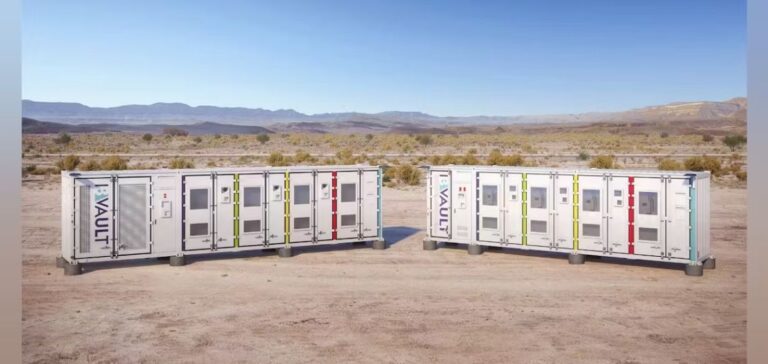Acen Australia has commenced construction on a 200 MW/400 MWh battery energy storage system (BESS) at the 720 MW New England solar site, located near Uralla, New South Wales. The project aims to provide clean, reliable energy to the New South Wales and Queensland grids.
The BESS, supplied by energy storage technology provider Energy Vault, will be equipped with advanced grid-forming inverters, which will improve the system’s strength and security. The installation will store surplus energy generated by the solar farm for use during peak demand periods.
Development of the New England Solar Project
The New England Solar project is being developed in two stages. The first stage, a 400 MW photovoltaic plant, began operations in 2023. The second stage, which will add a further 320 MW, is expected to be operational by 2026. The entire project covers 2,000 hectares of predominantly grazing land, with a 330 kV transmission line owned by TransGrid passing through the site.
Connecting the BESS requires an expansion of the switching yard to link the storage system and the second stage of the solar project to TransGrid’s transmission network. Lumea, the commercial arm of Australian transmission system operator TransGrid, is responsible for the connection, with final commissioning expected by mid-2026.
Support from the Emerging Energy Program
This BESS is the first large-scale storage project to receive support from the New South Wales (NSW) government’s Emerging Energy Program. This programme provides grants to assist in the development of large-scale electricity and storage projects, contributing to the region’s energy transition.
Energy Vault CEO and Chairman Robert Picon commented, “Our geotechnical and design work is nearly complete, and work to install the electrical infrastructure to connect the battery is well underway. We expect civil and base electrical work for the BESS to begin in the next month or two, with delivery of the battery modules in the second half of the year.”





















